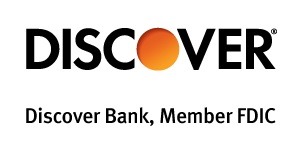 Saving up for your dream purchase can be a pretty difficult task. Whether it be your dream home, car, or vacation, choosing a money market account or CD can help you reach your goals faster and more efficiently.
Saving up for your dream purchase can be a pretty difficult task. Whether it be your dream home, car, or vacation, choosing a money market account or CD can help you reach your goals faster and more efficiently.
Both the CD and Money Market accounts are readily available in most banks and credit unions, your only job is to select the one that is best for you.
If you’re still stuck using a savings account to reach your big purchase goals, then you’re missing out because CD and Money Market accounts tend to have higher interest rates.
Fortunately, choosing between putting your money into a CD or a Money Market doesn’t have to be a difficult decision because we have all of the information ready to help you figure out Which Is Best Investment for You.
| Rising Bank | 5.35% APY 6-Month CD | Review |
| Rising Bank | 5.31% APY 12-Month CD | Review |
| Western Alliance Bank | 5.30% APY 5-Month CD | Review |
| Western Alliance Bank | 5.26% APY 3-Month CD | Review |
| Western Alliance Bank | 5.23% APY 6-Month CD | Review |
| Ponce Bank | 5.20% APY 3-Month High Yield CD | Review |
| Ponce Bank | 5.20% APY 1-Month High Yield CD | Review |
| Alliant Credit Union | 5.20% APY 12-Month Certificate | Review |
| Technology Credit Union | 5.15% APY 5-Month No-Penalty CD | Review |
| Mission Valley Bank | 5.15% APY 1-Month CD | Review |
| Western Alliance Bank | 5.15% APY 9-Month CD | Review |
| Mission Valley Bank | 5.15% APY 3-Month No Penalty CD | Review |
| Blue Federal Credit Union | 5.10% APY 9-Month No Penalty CD | Review |
| Western Alliance Bank | 5.05% APY 12-Month CD | Review |
| Lemmata Savings Bank | 5.05% APY 9-Month CD | Review |
| Quontic Bank | 5.05% APY 6-Month CD | Review |
| Sallie Mae | 5.05% APY 14-Month CD | Review |
| Sun Canyon Bank | 5.04% APY 5-Month CD | Review |
| SkyOne Federal Credit Union | 5.00% APY 5-Month CD | Review |
| Sallie Mae | 5.00% APY 10-Month CD | Review |
| First Tech Federal Credit Union | 5.00% APY 13-Month Share Certificate | Review |
| First Citizens Bank | 5.00% APY 11-Month CD | Review |
| Sun Canyon Bank | 4.94% APY 11-Month CD | Review |
| First Financial Northwest Bank | 4.90% APY 12-Month CD | Review |
| Nelnet Bank | 4.86% APY 12-Month CD | Review |
| GreenState Credit Union | 4.70% APY 10-Month CD | Review |
| Blue Federal Credit Union | 4.70% APY 15-Month CD | Review |
| Discover Bank | 4.70% APY 12-Month CD | Review |
| Nelnet Bank | 4.55% APY 24-Month CD | Review |
| First Mid Bank & Trust | 4.50% APY 9-Month CD | Review |
| SkyOne Federal Credit Union | 4.50% APY 15-Month CD | Review |
| Nelnet Bank | 4.45% APY 36-Month CD | Review |
| SkyOne Federal Credit Union | 4.20% APY 12-Month CD | Review |
| CIT Bank | 3.50% APY 13-Month CD | Review |
| CIT Bank | 3.50% APY 11-Month No-Penalty CD | Review |
| CIT Bank | 3.00% APY 6-Month CD | Review |
| CIT Bank | 3.00% APY 18-Month CD | Review |
What is a Money Market Account?
Similar to banks and credit unions, money market accounts are staples of financial institutions. They are a great option for a large number of people, but it is important to know how they work.
By definition, the money, that comes into money market accounts, comes from other sources of income, such as relatively safe investment products. Because banks earn interest on your savings, they will offer higher interest rates on money market accounts.
This allows them to share some of that income with you. This is uncommon because generally banks and credit unions get the money to pay you interest on your savings account from the interest from loans.
Money market accounts also have the ability to write checks, just like you normally would with a checking account. That is because this account is actually a hybrid between a savings and a checking account, so it has features of both.
One of the biggest drawbacks that this hybrid account has is the six-withdrawal limit of savings accounts. Not including ATM and in-person withdrawals, customers can only make six transactions taking money out of the account per statement period. Consequently, going over this limit will result in a penalty fee.
Pros and Cons of Money Market Accounts
A great perk of having a money market account is that it is a useful money management tool. Generally, they are described as a mix of a savings account and a checking account. Money market accounts earn interest much like savings accounts do, based on the interest rate that applies at a given time.
Also, MMAs usually have more favorable rates than a traditional savings account. They even include the ability to write checks and offer ATM cards. Still, you should check with your bank to see if their MMA offers these perks.
However, money market accounts don’t have the complete flexibility of checking accounts. MMAs do limit you to six outgoing transactions, like withdrawals and transfers, per statement cycle just like with a savings account.
If you’re considering a MMA, consider their minimums. A higher minimum deposit and balance can come as a cost of better interest rates. For example, you may be asked to make a minimum deposit of $2,500 or higher, with some going as high as $10,000.
When to Choose a Money Market Account
Plain and simple, choose a Money Market account if:
- The rate on the Money Market account offered by your bank or credit union is higher than a normal savings account.
- You would prefer to always have access to your money and can’t leave it alone for a set period of time.
- You would like to keep adding money into your account as you earn it.
Although most banks and credit union tend to offer higher interest rates on money market accounts, sometimes it may not be the case. That is why it’s best if you compare your local bank’s money market’s interest rate with the savings account’s interest rates to see which is higher. If the savings account’s rate is higher, it’s probably worth it to go for that account instead.
Assuming that the money market account does end up offering a higher interest rate, that means it’s a good choice for accounts like an emergency fund. This is because there is no penalty for withdrawing money as long as you stay under the six-withdrawal monthly limit.
Not only is this account versatile enough to allow withdrawals, but it also allows you to make deposits into the account at any time. If you tend to always deposit a portion of your check or money in to your account, this is a great option for you.
Money Market Account Options
 • Get started and open a Discover® Money Market Account in 3 easy steps. • Available nationwide online • Earn high yields with flexible access to your cash. • Earn 4.05% APY balances $100,000 and over • Earn 4.00% APY balances under $100,000 • Open with as little as $2,500. • No hidden fees. No surprises. • Easy cash access via debit or check, or via ATM at over 60,000 no-fee ATMs |
What is a CD?
CD stands for certificate of deposit and makes for great short term investments. CDs tend to offer some of the highest interest rates among all other accounts available at banks and credit unions.
A certificate of deposit (CD) is a type of account known as a “timed deposit account” and what this means is that you must agree to keep a certain amount of money in the account for a specified period of time, known as the “term length”.
These term lengths can range from a few months to a few years. During this time period, you cannot add any more money to the account, and CDs generally require a higher deposit, usually between $500-$1,000.
The longer the term length, the higher the interest rate you’ll receive. Occasionally, banks and credit unions offer higher rates on “jumbo CDs,” which will require that you start with a deposit of at least $100,000 into the account.
A CD is deemed “mature” when it has reached the end of its term length. At this point, most CDs will automatically become a brand new CD, and you’ll have a short window of 7-10 days to withdraw any money for free. If you withdraw outside of the window, you will have to pay a penalty.
Pros and Cons of CDs
Certificates of deposit, or CDs for short, are timed deposit accounts. The process of opening a CD is quite simple. Choose your term length from the options that your bank or credit union offer to you. The terms tend to range from three months to five years.
Once you open the account, you have to make a deposit. The deposit that you make will be held for the entire term length, so make sure you only deposit the amount of money you don’t mind not having access to at a moments notice.
The whole point of a CD is to lock away your money for a certain amount of time while it earns interest. This allows the bank to use your money during this time for other tasks. Once your CD reaches the end of its term, you’ll receive your initial deposit back, plus all the interest you earned during the term.
When to Choose a CD
Choose a CD if:
- You possess a significant amount of money saved up.
- You won’t need that large sum of money before the term length is over.
- You want to earn money on your savings instead of investing in riskier products.
Because you can’t withdraw any money from the account once it’s set up, it is best to have a large chunk of your savings goal on hand so that you can get the most out of the high interest rate. Also, if you don’t need a large sum of cash right away, then a CD would be perfect because it requires that you have a large amount of money in the account for a period of time. Another convenient positive is if you’re easily tempted to spend money instead of saving, a CD can help you save that money because there is a penalty if you try to withdraw before the term length is up.
In addition to having some of the highest interest rates amongst most accounts offered at banks and credit unions, they are still FDIC or NCUA insured. This means that even if the banking institution fails, you’re money is covered.
CD and Money Market Similarities
Now that we know a little bit about both types of accounts, let look at some of their big similarities that make them such an attractive offer. Both accounts require a higher than usual initial deposit to open. Both accounts are FDIC or NCUA insured and offer higher interest rates than your run of the mill savings account.
CD and Money Market Differences
One of the biggest differences between the two account types is that once you put money into a CD you can’t really withdraw or deposit any more money into the account once the term has begun. Otherwise, any effort to interact with the money will result in some sort of penalty fee.
Although CDs will have early withdrawal fees, money market accounts will charge customers a fee if they withdraw more than six times in a month or statement period.
Every time you over that withdrawal limit, you will be charged an excess withdrawal fee. Similarly, if you overdraw your balance, you will be charged.
Moving money in a money market account is a lot easier than trying to move your money in a CD. You can even request a checkbook for your money market account and some even come with an ATM card. To move money on your CD you would have to contact your bank that you have the account with or transfer it online.
CD Account Options
 • Available nationwide online, Discover® offers CDs with some of the highest & most competitive rates! with select terms as short as 3 months up to 120 months • Rates ranging from 2.00% APY up to 4.70% APY. • Opening a Discover Bank Certificate of Deposit is extremely quick and easy. • Funds on deposit are FDIC-insured up to the maximum allowed by law. • Start today with a minimum deposit of $2,500! • Get started and open a Discover CD in 3 easy steps. |
 |
Bottom Line
Regardless of what you choose, you will still be investing your money in a safe place without any worry. Now that you know a little more about money market accounts and CDs, focus on the main ideas behind both account types.
Money market accounts are great hybrid accounts that offer high interest rates on the amount you have, and you have access to your money.
Certificates of deposit are long term investments, so if you’re looking to buy a house in the future, this is the route for you. Happy savings.
If you like posts like this, be sure to check out our list of the Best CD Rates, Best Bank Rates, and Best Money Market Rates, here on HMB!



